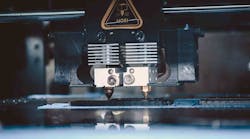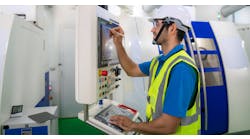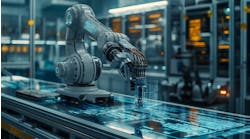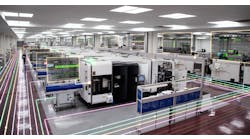The Boeing Co. entered into a five-year agreement with Oerlikon Group to standardize titanium materials and processes for additive manufacturing, or 3D printing. The terms of the agreement were not described, but in their announcement the partners indicated their focus will be to industrialize titanium powder-bed fusion additive manufacturing, and to certify that the parts they develop meet the Federal Aviation Administration and U.S. Department of Defense flight requirements.
“This agreement is an important step toward fully unlocking the value of powder bed titanium additive manufacturing for the aerospace industry,” stated Leo Christodoulou, Boeing Chief Technologist. “Boeing and Oerlikon will work together to standardize additive manufacturing operations from powder management to finished product and thus enable the development of a wide range of safe, reliable, and cost-effective structural titanium aerospace components.”
Boeing has been researching and conducting additive manufacturing technologies for more than 20 years, and it claims to have about 50,000 3D-printed parts in place on its commercial aircraft, defense aircraft, and space programs. Last year, Boeing became the first commercial aircraft OEM to install an FAA-qualified 3DP structural titanium part, on the 787 Dreamliner.
The group formed Boeing Additive Manufacturing organization in 2017.
Oerlikon is a Swiss engineering and manufacturing group specializing in surface technologies, advanced materials, and materials processing. In 2016, Oerlikon acquired citim GmbH, a manufacturer of metal 3DP parts for prototypes or low-volume orders.
Dr. Roland Fischer, Oerlikon CEO, assured that, “working together with Boeing will define the path in producing airworthy additive manufacturing components for serial manufacturing. We see collaboration as a key enabler to unlocking the value that additive manufacturing can bring to aircraft platforms, and look forward to partnering with Boeing.”
The partners will use the data they co-develop to support the qualification of additive manufacturing suppliers to produce metallic components, using various materials and 3DP technologies.






